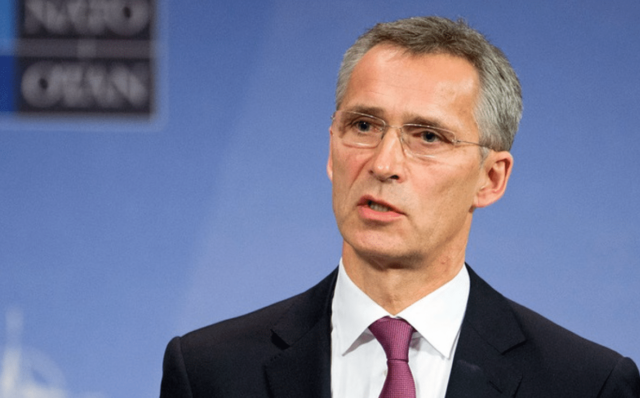
NATO chief says alliance will defend ‘every inch’ of its territory, as it sets new summit NATO Secretary General Jens Stoltenberg. (U.S. State Department photo/Released)
This article was originally published by Radio Free Europe/Radio Liberty and is reprinted with permission.
NATO Secretary-General Jens Stoltenberg says that Russia’s attack on Ukraine has shattered peace in Europe and he vowed that the alliance would defend “every inch” of its members’ territory.
“We must respond with renewed resolve and even stronger unity,” Stoltenberg told a news conference after conducting an emergency meeting of NATO ambassadors in Brussels.
“What we do is defensive,” said Stoltenberg, who confirmed that NATO will hold a virtual meeting of its 30 national leaders on February 25.
Stoltenberg restated the alliance’s commitment to Article 5, which holds that an attack on one member constitutes an attack on all members.
He said the alliance is also activating its “defense plans” for allied countries following Russia’s attack on Ukraine, which is not a NATO member but is aligned with the West.
The NATO chief said the Western military alliance was already bolstering its defense capabilities and that it had more than 100 warplanes on high alert to protect members’ airspace.
Stoltenberg blasted Russia’s attack on Ukraine, saying it was “a deliberate, cold-blooded, and long-planned invasion.”
He said that “Russia is using force to try to rewrite history.”
“Russia has attacked Ukraine. This is a brutal act of war. Our thoughts are with the brave people of Ukraine,” he said. “Peace on our continent has been shattered.”
The emergency session on February 24 came after Estonia, Latvia, Lithuania, and Poland requested rare consultations under Article 4 of the NATO charter. That article can be initiated when “the territorial integrity, political independence, or security of any of the [NATO] parties is threatened.”
“We have decided, in line with our defensive planning to protect all allies, to take additional steps to further strengthen deterrence and defense across the alliance,” envoys of the four countries said.
The Polish government urged NATO to bolster its forces in the East after Russia’s military offensive.
“Now is the time to reinforce NATO’s eastern flank. We expect such decisions to be taken,” government spokesman Piotr Muller said on February 24.
Muller added that Polish diplomatic missions in Ukraine would remain open “as long as possible.”
NATO began sending additional troops to its eastern flank following Russia’s previous invasion of Ukraine in 2014, when it seized the Crimea region. Moscow has since supported separatists in eastern Ukraine in a bloody war against the Kyiv government.
On February 11, U.S. President Joe Biden ordered the deployment of an additional 3,000 U.S. soldiers to Poland. A Pentagon statement said the troops would join some 1,700 soldiers who arrived in Poland at the start of the month.
“All told, these 5,000 additional personnel comprise a highly mobile and flexible force, capable of multiple missions. They are being deployed to reassure our NATO allies, deter any potential aggression against NATO’s eastern flank, train with host-nation forces, and contribute to a wide range of contingencies,” the Pentagon statement said.




